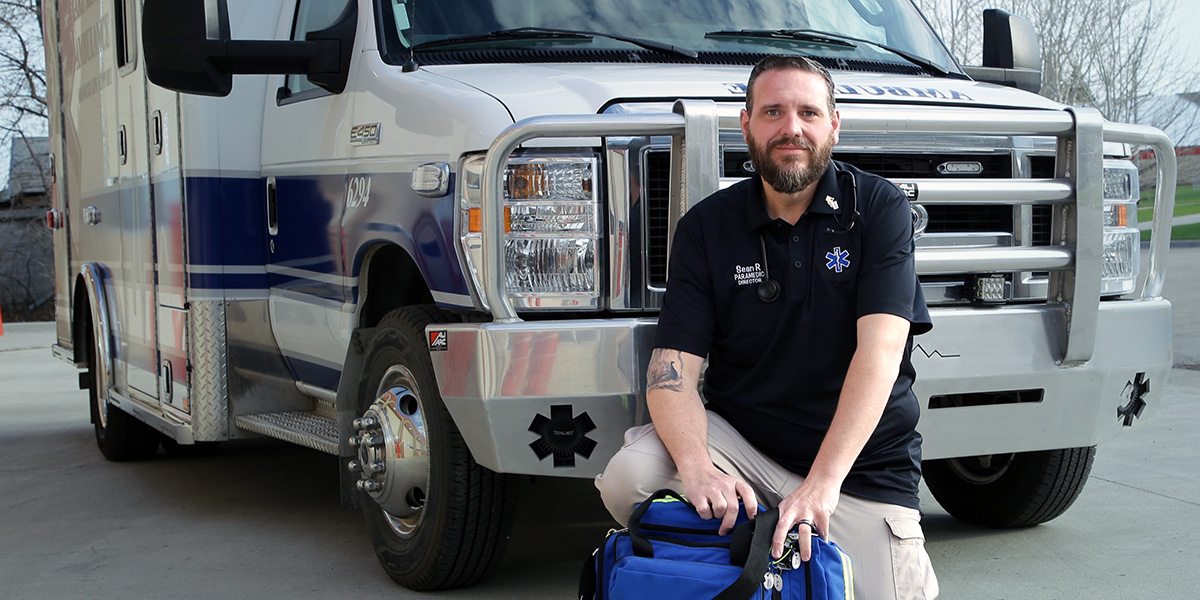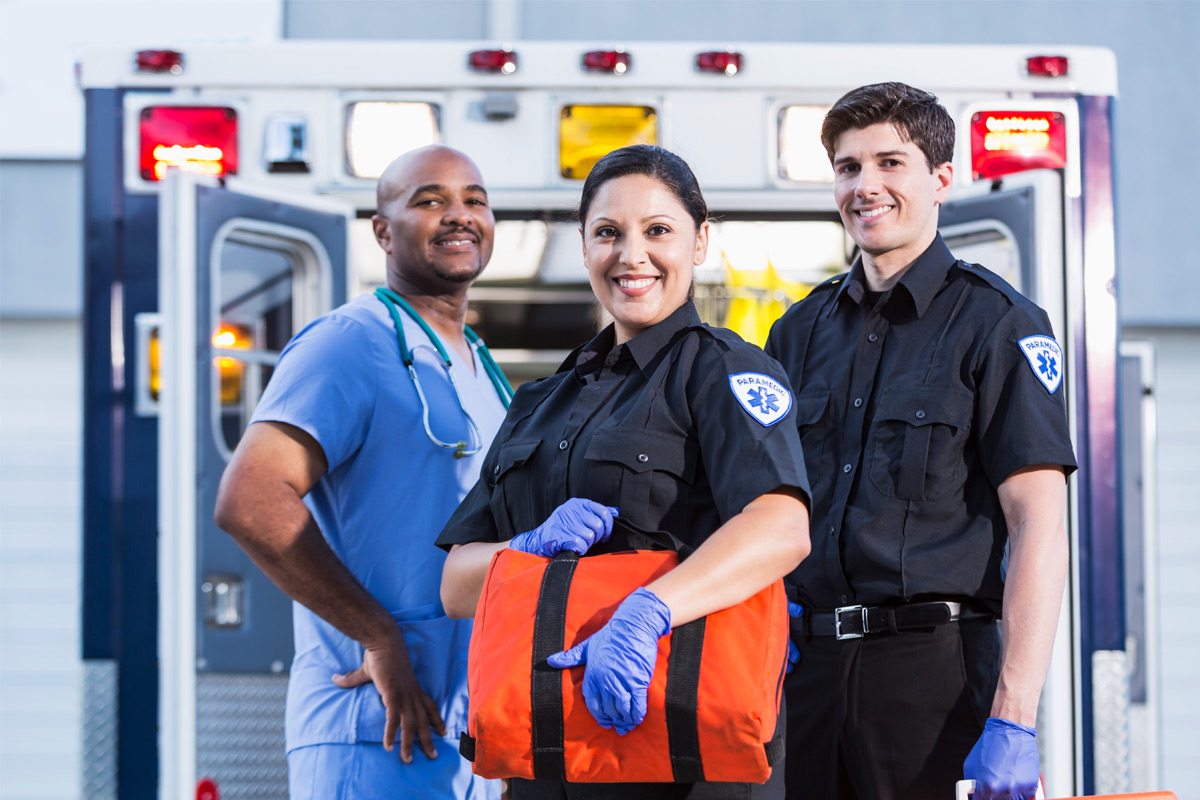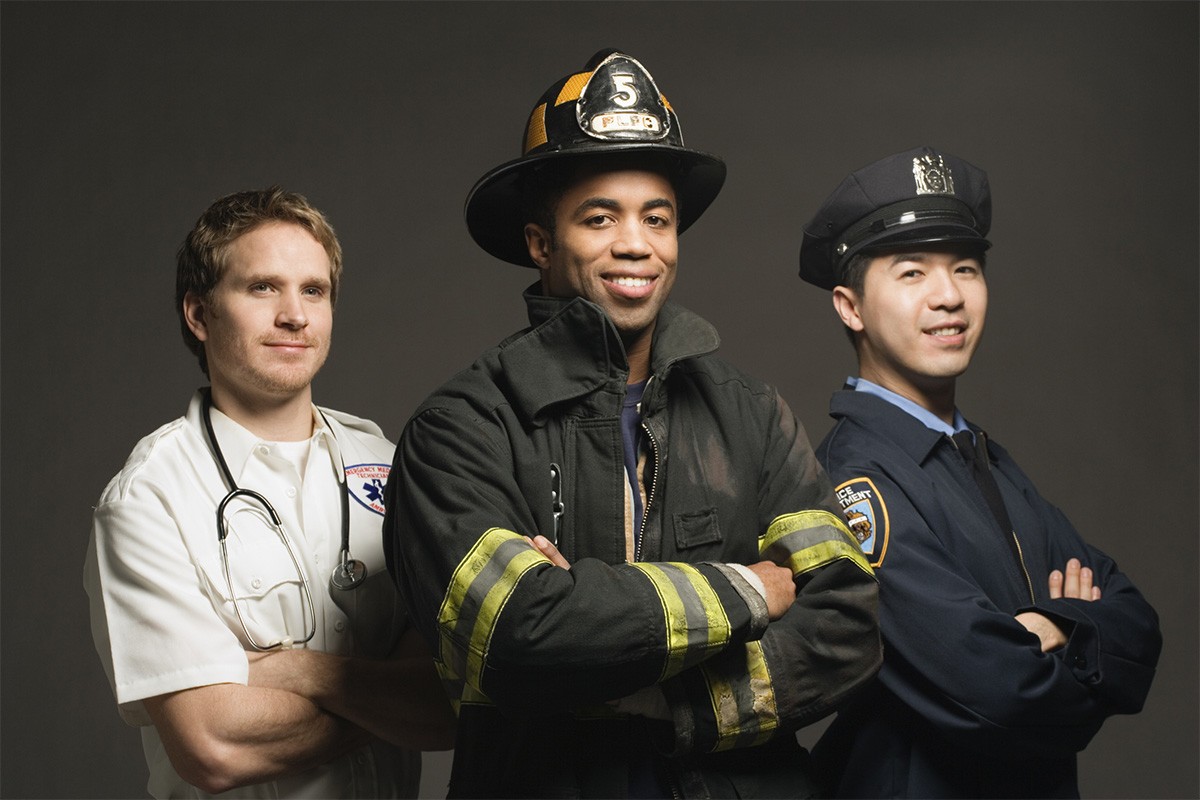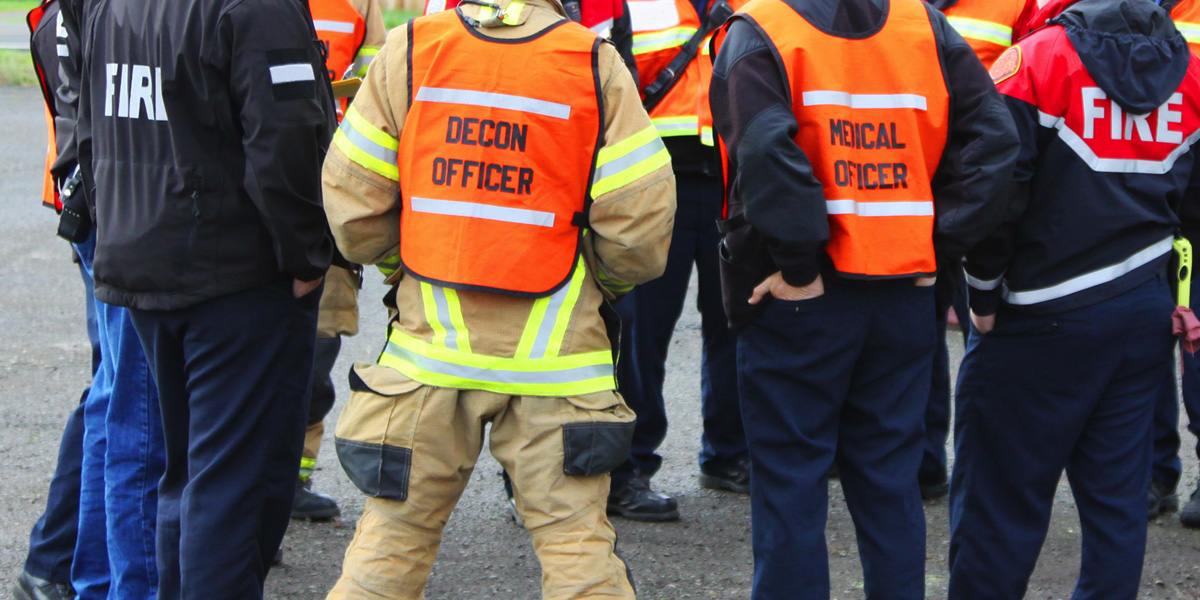Used as a broad term for the members of various public, private, and nonprofit organizations that respond to emergencies, “first responder” is a term that has gained a great deal of cultural recognition over the last decade. The pandemic may have brought new appreciation for the EMTs, firefighters, and other professionals who worked to keep people safe during that time. This likely contributed to public opinion viewing these professionals in the highest regard among all careers and positions.
If you are considering a first responder role, experts are predicting faster-than-average job growth for nearly every single type of first responder, offering long-term career potential. Here are some of the types of first responder roles you can explore:
- Medical First Responders
- Emergency Responders and Firefighters
- Law Enforcement
- Public Safety Telecommunicators
Medical First Responders
Perhaps the first thing people think of when they hear “first responders” is the medical professionals who are ready to assist during a medical emergency. These challenging roles require extensive training, but they offer invaluable skills and can lead to more specialized roles in firefighting, dispatching, or medicine.
Paramedics and EMTs:
These first responders specialize in diagnosing, triaging, and assisting people in medical emergencies, as well as transporting them safely to a medical facility. Their training involves learning skills that allow them to quickly diagnose medical issues based on both the patient’s symptoms and the context of their situation. The exact training can differ from place to place, but all of them undergo rigorous training, education, and accreditation.
Behavioral Health Crisis Response:
A more recent development in emergency services, behavioral health responders focus on mental health crises, drug overdoses, and issues specifically related to behavioral health emergencies. These first responders have specialized training that allows them to help build rapport with someone in a crisis, identify their needs, and give them access to resources that can help. The professionals are also trained to de-escalate difficult or strenuous situations, creating better and safer outcomes for the person as well as other first responders.
Emergency Responders and Firefighters
Emergency responders are most often firefighters, but they can also focus on specialization, such as search and rescue and disaster preparedness. Although firefighters often receive training in many of these practices, specialization in certain kinds of emergency response is highly valuable.
Firefighters:
Depending on the city or state, firefighters may be highly trained professionals or volunteers, and they may even be expected to have worked as an EMT, search and rescue professional, or other emergency services. Some may also have studied fire science, administration, or other emergency response-related subjects in school. The breadth of training is always significant, as firefighters typically are expected to respond to a wide range of emergencies, from traffic accidents, health emergencies, building collapses, and other major crises, in addition to their primary role of firefighting.
Disaster Response:
Disaster response is often more wide-ranging than the more locally focused efforts of firefighters. It includes not only those working on the ground, but also emergency managers and their support staff, coordinators, dispatchers, and communicators who ensure resources and communication flow smoothly. Their goal, in addition to limiting the impact of the disaster in question, is triage and resourcing, and reducing delays during large-scale emergencies.
Law Enforcement
Law enforcement officers are also often among the first on the scene during an emergency. They play a crucial role in managing emergencies and are tasked with calling in other first responders if medical assistance or rescue is needed.
Police Officers, Sheriffs, and Deputies:
As first responders, these professionals are trained to deal with a variety of situations in accordance with the law. They often have basic first aid training and other resources to assist those having a medical emergency before more qualified help arrives. They are also tasked with gathering information and reporting on situations, speaking with witnesses, and determining whether additional resources are needed.
Park Rangers and Specialized Officers:
Law enforcement that specializes in certain areas, such as patrolling parks, are often trained to address specific issues unique to their area of expertise. For example, these first responders assist people who are trapped in a precarious position, have had a dangerous encounter with wildlife, or been exposed to some other natural hazard.
Public Safety Telecommunicators
Public safety telecommunicators, often known as emergency dispatchers or 911 operators, also play a crucial role in the emergency response ecosystem. They are responsible for receiving emergency calls, assessing situations, and coordinating appropriate responses by dispatching police, fire, or medical services. Emergency dispatchers are becoming recognized as first responders. Recent legislative efforts, such as the Senate bill highlighted by NENA, aim to reclassify 911 professionals, acknowledging their contributions alongside traditional first responders who arrive on the scene of emergencies.
911 Operators
Operators, also known as call takers, handle the initial “911” calls and provide support services by phone. Operators play an important role in the first responder process by determining the nature of the emergency and the best course of action in high-pressure situations. These professionals help callers with resources and provide emotional support until first responders arrive on-site to assist. They typically work in call centers and communicate with dispatchers to help connect callers with traditional first responders.
911 Dispatchers
Emergency dispatchers coordinate police officers, firefighters, and other public safety and emergency services and crews. Dispatchers work with 911 operators and call takers to process calls and transfer important information to field personnel. These professionals track crews, vehicles, equipment, and recordings and determine the appropriate first responders to dispatch in the field. They may work in police stations and fire departments.
Gain Invaluable First Responder Skills at Columbia Southern University
Columbia Southern University offers courses, certificates, and degree programs designed to help you obtain the skills you need to work as a first responder, coordinator or emergency services administrator. Learn more about our programs here.
Multiple factors, including prior experience, geography and degree field, affect career outcomes. CSU does not guarantee a job, promotion, salary increase, eligibility for a position, or other career growth.






